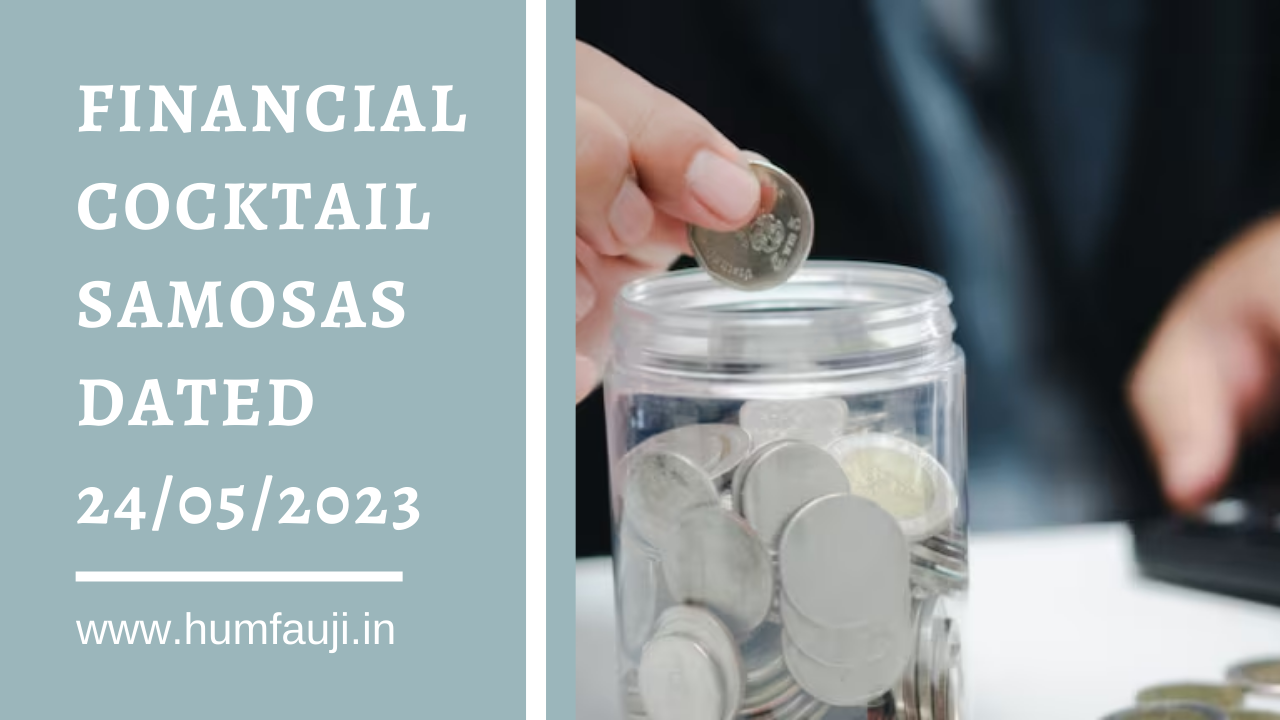Fear and Greed: Two Behavioural Traits That Lead to Wrong Investments
‘Fear and greed’ are the biggest drivers for investment decisions of most people but can often lead to poor outcomes. Here’s how these two behavioural traits can impact investment decisions negatively:
1) Fear: Fear-driven investment decisions are typically characterized by a strong aversion to risk and a desire to protect capital at all costs. It manifests itself in several ways:
(a) Panic selling: During market volatility or downturns, fear-driven investors hastily sell their investments, often incurring significant losses. This reactive behaviour can lead to selling low and missing out on the potential recovery.
(b) Loss aversion: Investors driven by fear tend to be overly focused on avoiding losses rather than seeking gains. This mindset may prevent them from taking calculated risks or seizing profitable investment opportunities, potentially limiting their long-term returns.
(c) Herd mentality: Herd mentality occurs when investors follow others without due diligence, contributing to market bubbles or crashes. This behaviour disregards fundamentals as everyone rushes to join or exit a particular investment trend.
2) Greed: Greed-driven investment decisions are characterized by excessive risk-taking and a strong desire for quick and substantial profits. Some common pitfalls associated with greed include:
(a) Chasing hot trends: Greedy investors chase speculative assets without fully understanding the risks or long-term potential, often buying at inflated prices. This behaviour can lead to substantial losses when the hype diminishes
(b) Ignoring fundamentals: Greedy investors may overlook fundamentals and rely solely on short-term market trends or speculative factors. This approach can lead to poor investment decisions based on temporary market sentiment rather than the underlying value of assets.
(c) Overconfidence: Greed can foster overconfidence, leading to excessive risk-taking and neglect of proper risk management practices. Investors may become too confident in their abilities, disregarding the inherent uncertainty and unpredictability of financial markets.
To make sound investment decisions, it’s essential to manage fear and greed effectively. A disciplined approach based on thorough research, diversification, and a long-term investment perspective can help mitigate the negative impacts of these behavioural traits. A good, professional advisor can be your best friend in such times.
(Contributed by Abhilash Rana, Financial Planner, HNI Desk, Hum Fauji Initiatives)

When a person is terminally ill, the emotional impact on the individual and caregivers cannot be overstated. There also are financial implications to the diagnosis that cannot be overlooked.
The main concern is how to improve your cash flow to pay for medical care and associated costs, while estate planning ensures a seamless transfer of your assets to your heirs.
As a family member, it becomes an obligation and responsibility to take care of each aspect even when you are not physically present with them.
- The initial thing you need to evaluate is the extent of your medical requirements that your insurance would cover. If additional family members are also covered by your Mediclaim, you will need to switch them to a new health plan to ensure that any future medical crises are covered as yours may become fully depleted.
- Sell assets, such as stocks, that may be challenging for your heirs to manage and consult a financial advisor who can oversee your family’s finances in your absence.
- Prioritize estate planning to ensure a smooth transfer of assets to loved ones or charitable organizations, while also accounting for potential medical expenses and other costs.
- Try to pay off any debts you still owe. Consider whether selling an asset might be a better option than borrowing against it to pay for long-term care, especially if you anticipate any legal issues in the future.
- Alongside other estate planning documents, consider writing a letter of instruction that includes details about the location of real estate deeds, life insurance policies, and contact information for accountants, lawyers, and advisors.
Plan your future today so you can enjoy each moment of your life.
(Contributed by Gautam Arora, Associate Financial Planner, Team Sukhoi, Hum Fauji Initiatives)
What have the Clients Asked Us in the Last 7 Days?
Question asked: Why debt funds are still relevant and worthy with limited opportunity?
Our Answer is mentioned below:
See our previous article on this subject: https://mailchi.mp/humfauji/are-debt-mutual-funds-still-relevantBut today, debt funds are not only the best safe investments to go ahead with right now but there is a huge and time-sensitive investment opportunity available in debt funds currently. RBI may pause interest rate hikes shortly and then start cutting the rates down which are now almost at a peak.Interestingly, while other safe investments will see their rates also go down, selected longer-term debt funds will provide better returns (called yield technically) as interest rates are cut down! This is due to a phenomenon called Mark-to-Market (M2M). Read our article on the subject here which also has our CEO, Col Sanjeev Govila, explaining the same: https://mailchi.mp/humfauji/will-you-miss-out-this-tremendous-safe-investment-opportunity
Question asked: What is our investment strategy when investing in medium to long-term debt mutual funds?
Our Answer is mentioned below:
We have considered investing in a mix of safely managed Dynamic Bond Funds, Banking & PSU Debt Funds, Corporate Bond Funds, and Credit Risk Funds. The quantum of exposure and type of schemes to invest in aligned with the current interest scenario and desired investment holding period. Investors in debt mutual funds have the option to select from a variety of offerings across liquidity, maturity, and credit quality, as well as active and passive strategies. This enables us to create a personalized portfolio that aligns with your financial needs.
To sum up, while the taxation benefit was a significant factor for many investors, there are several other benefits of investing in debt MFs that can only be overlooked at a big peril to you.
(Compiled by Team Arjun, Hum Fauji Initiatives)


